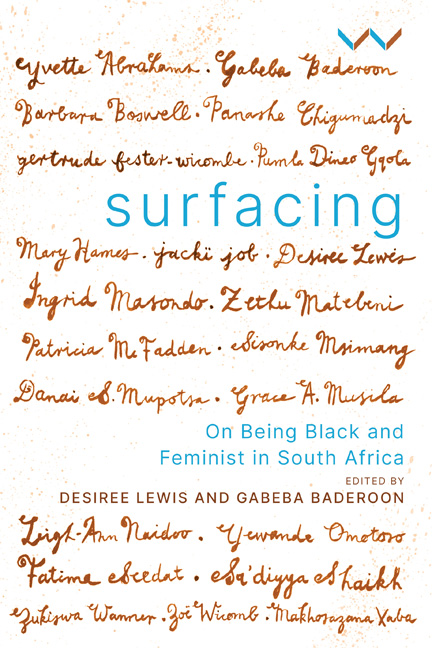Book contents
Chapter 6 - South African Feminists in Search of the Sacred
Published online by Cambridge University Press: 15 April 2021
Summary
August in South Africa is Women's Month, remembering the 20 000 women who marched to Parliament in 1956 to protest apartheid pass laws. In 2018, as commemoration, an independent group of feminist activists called for a #TotalShutdown, marked by, among other things, nationally coordinated marches in various cities to present the president with a series of demands addressing the high rates of domestic violence in the country. I attended the Cape Town march, where people began gathering at 9 am and finally began walking around 11 am. The march itself, many remarked, felt like a relatively safe space; men had been asked to stay away and only women-identifying and gender non-conforming people were welcome to attend. Personally, I enjoyed being in a space where I could walk easily, unencumbered by the discomfort of bumping into or making contact with male bodies. Here, I was unafraid to smile freely wherever my eyes moved across the crowd. As a friend explained, the male-free space provided a sense of security.
By 1 pm we had finally reached the gates of the Parliament, where the formalities began with, to our surprise, a call to a Christian cleric to begin the proceedings. I will leave it to you to imagine the outrage when the first words from the woman officiant were ‘In the name of God the Father’. Regardless of the booing and heckling, she continued her prayer almost unaffected. Later, as she passed near me through the crowd, I listened in as another marcher asked her why she could not speak of God the Mother. In the officiant's failure to respond adequately, my sister-marcher shared her view that clerics are ‘brainwashed’ such that the possibilities of a female God evade them. There was another prayer by a lay Muslim woman volunteer from the crowd. While there was no reference to God the Father in her prayer, there was also no special attention to the alternative gendered possibilities of the Divine.
This situation will not be news to many of us, and it represents an important issue I come up against regularly as someone who takes both gender and religion as areas of critical academic study and activism. In this case, even as the organisers worked within a feminist politics, they had not been able to manage the masculine representation of the divine at a march designed for women-identifying and gender non-conforming individuals.
- Type
- Chapter
- Information
- SurfacingOn Being Black and Feminist in South Africa, pp. 90 - 99Publisher: Wits University PressPrint publication year: 2021



